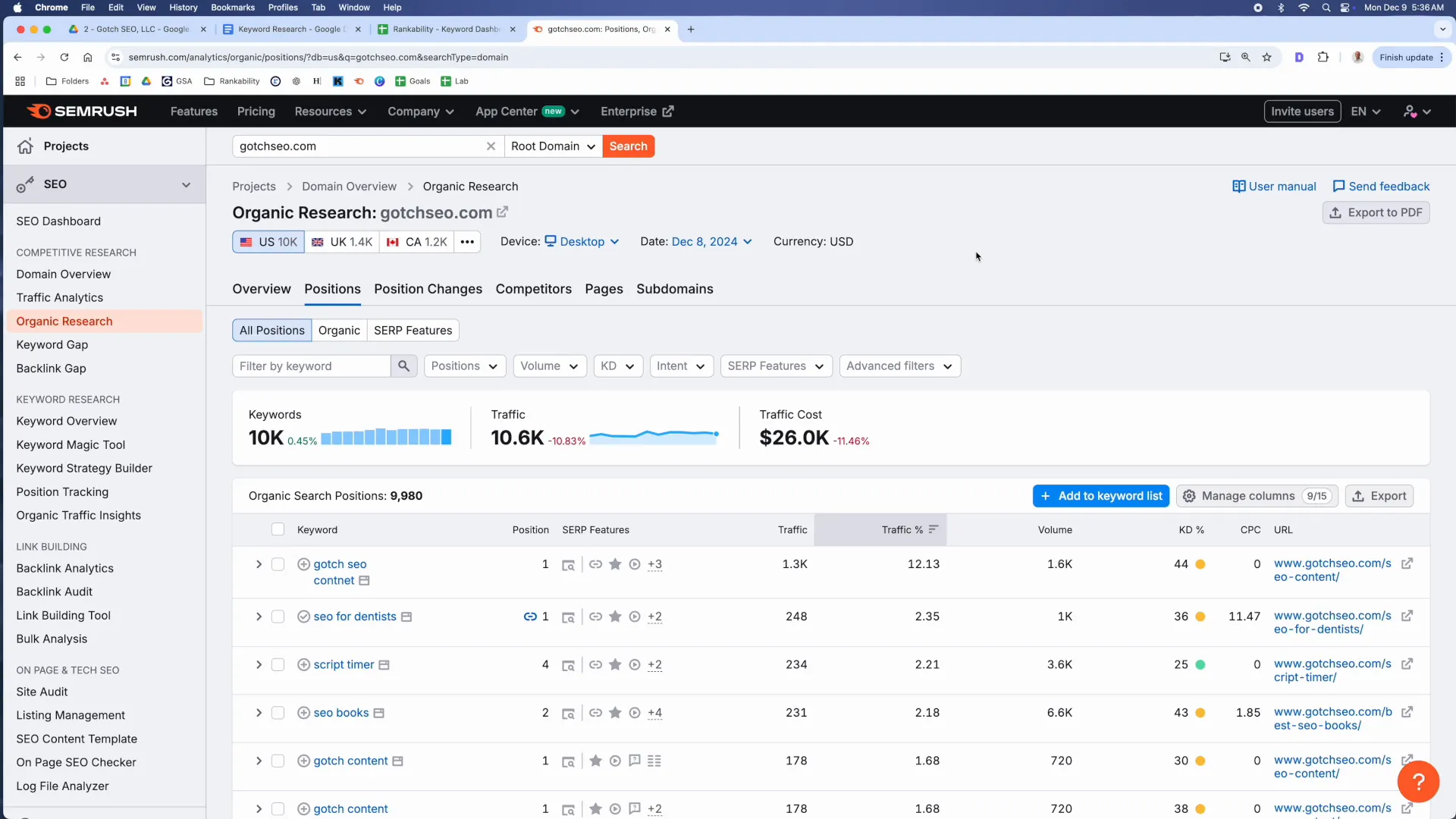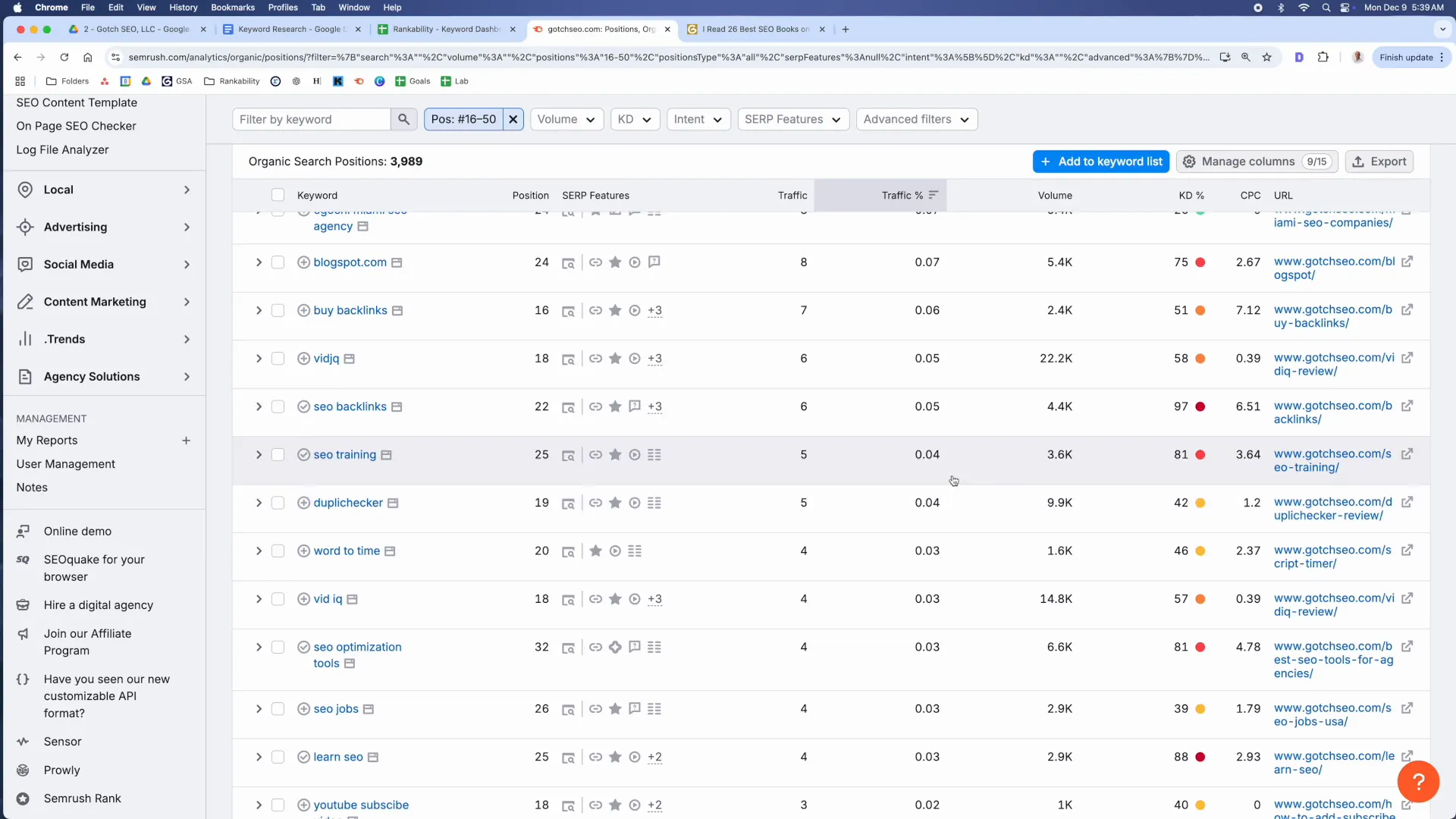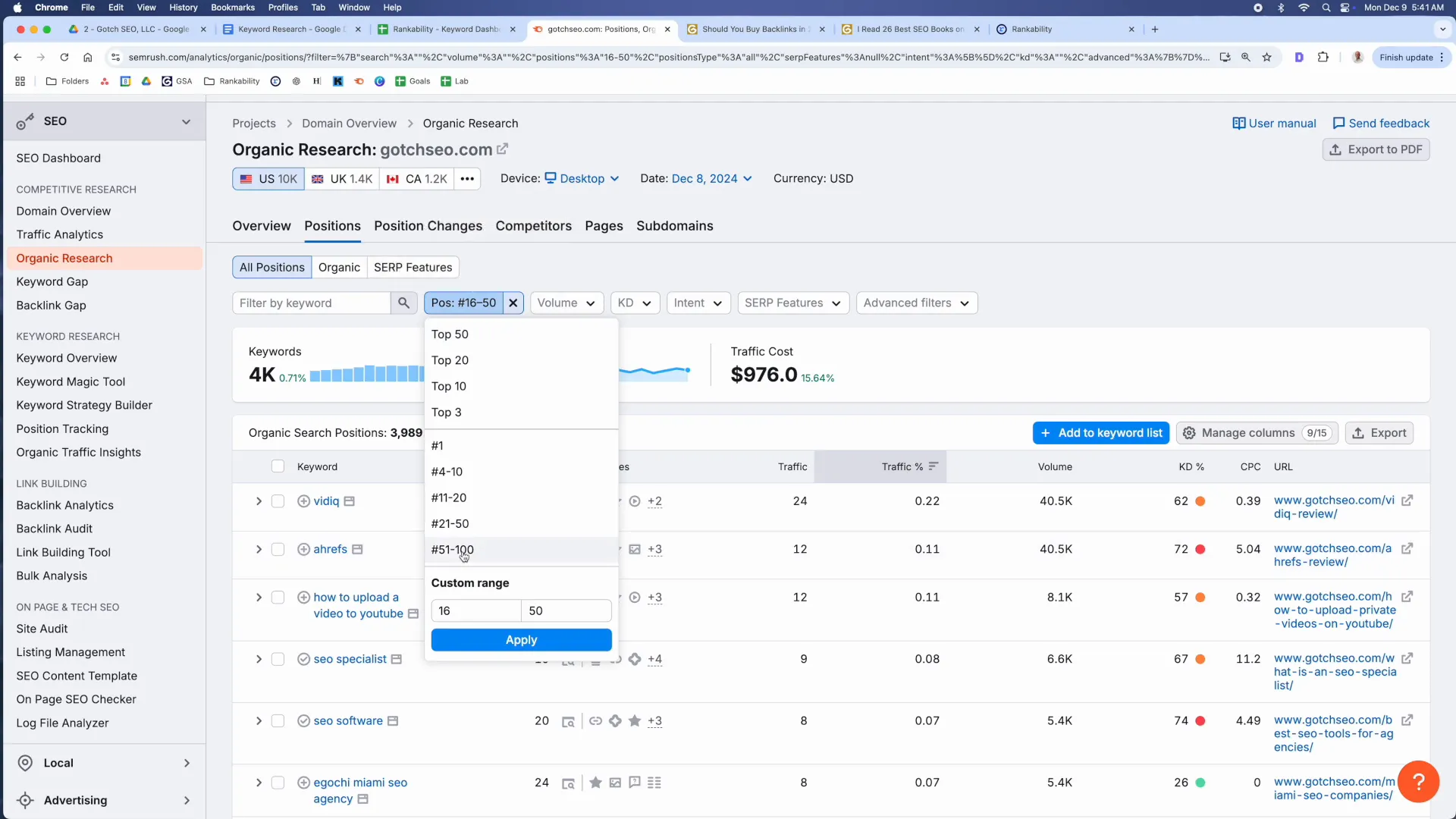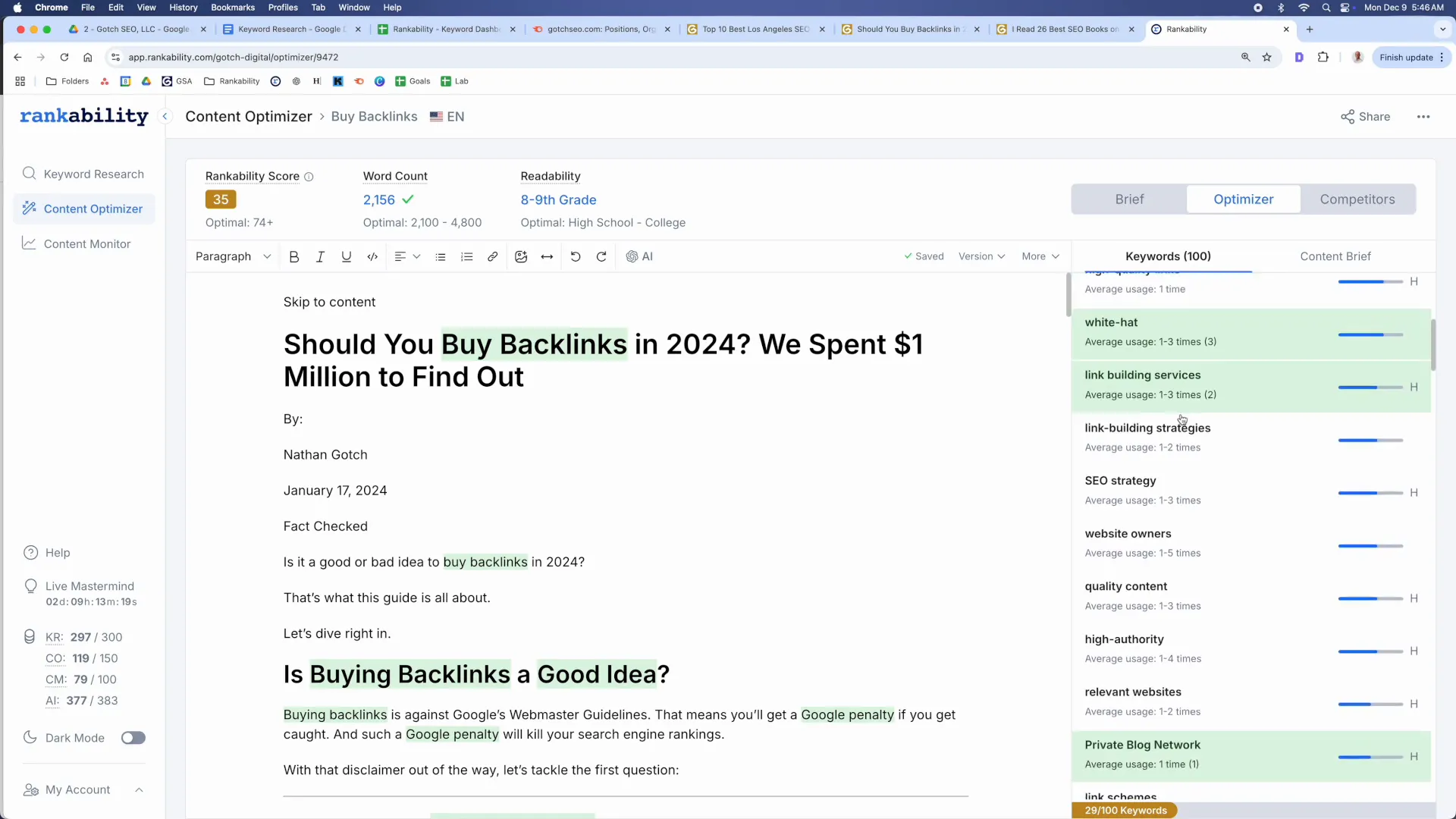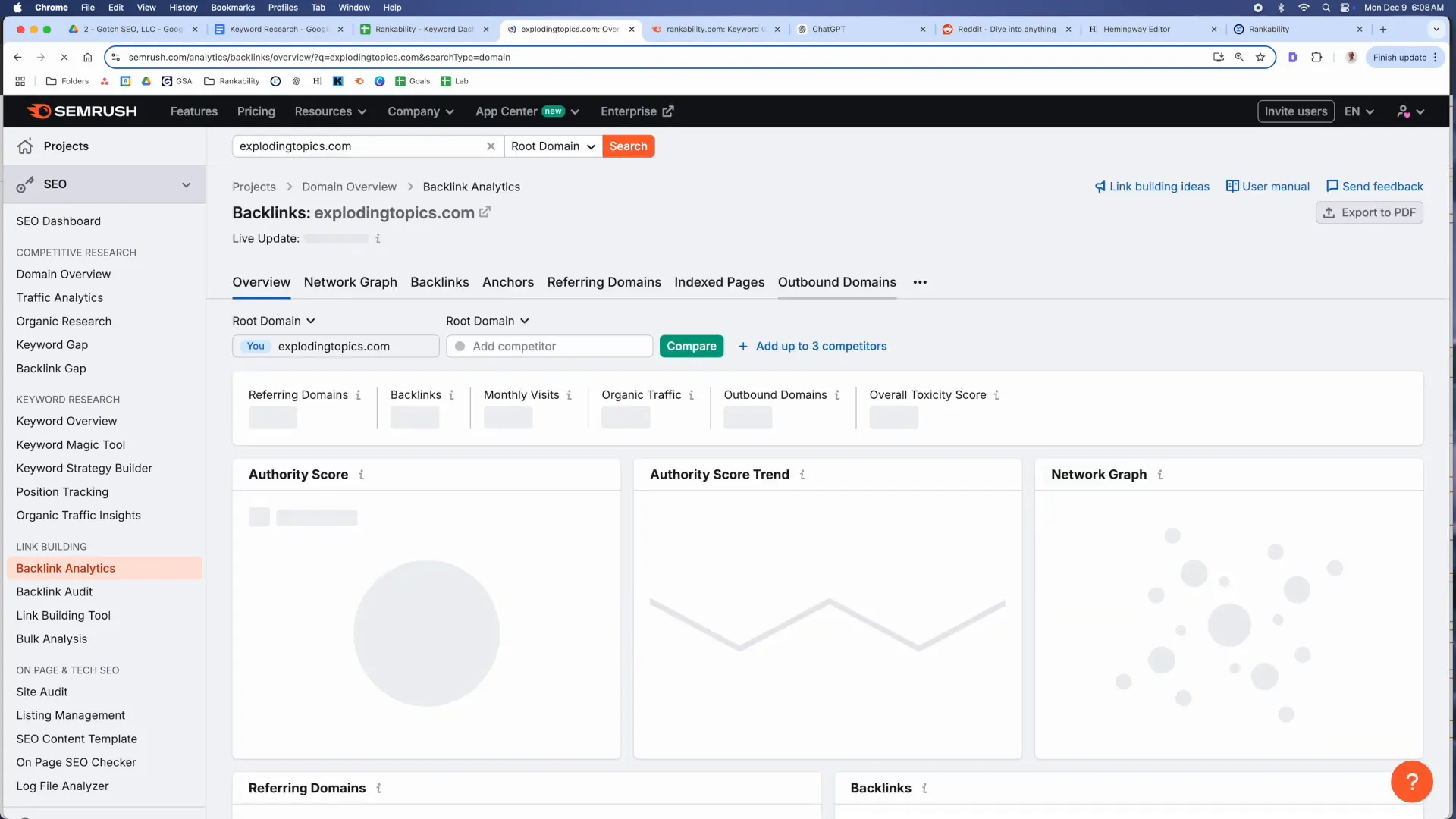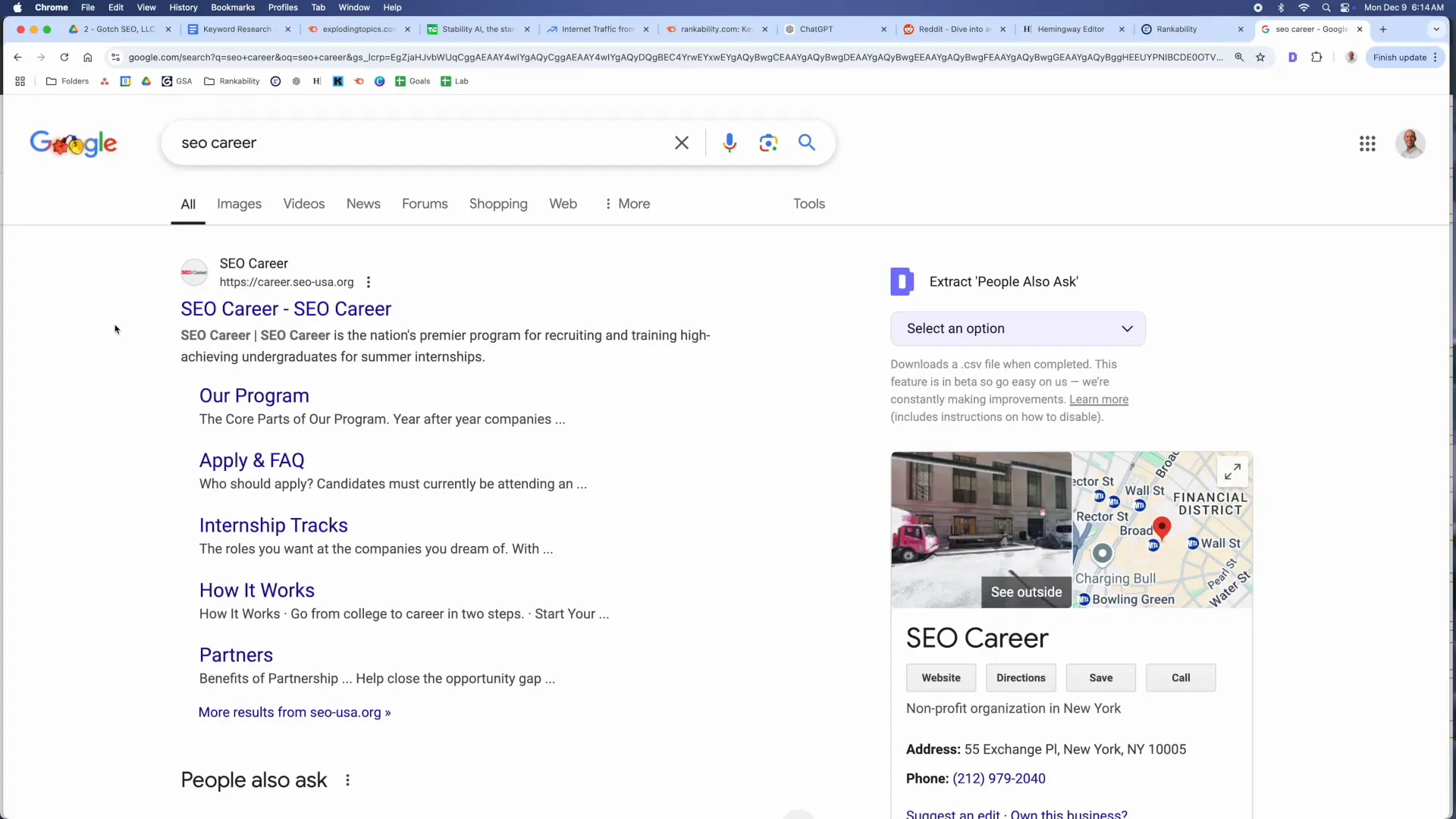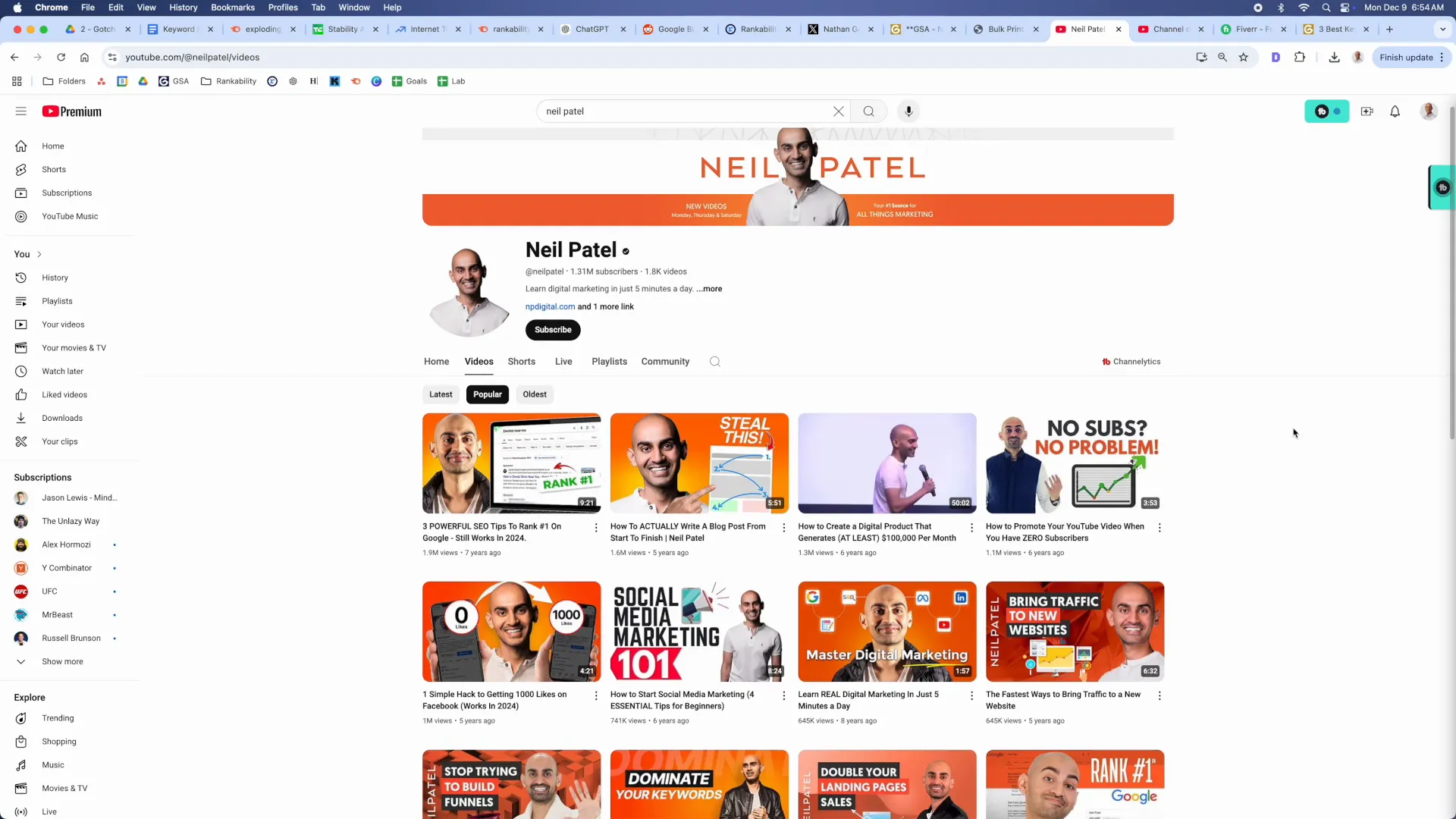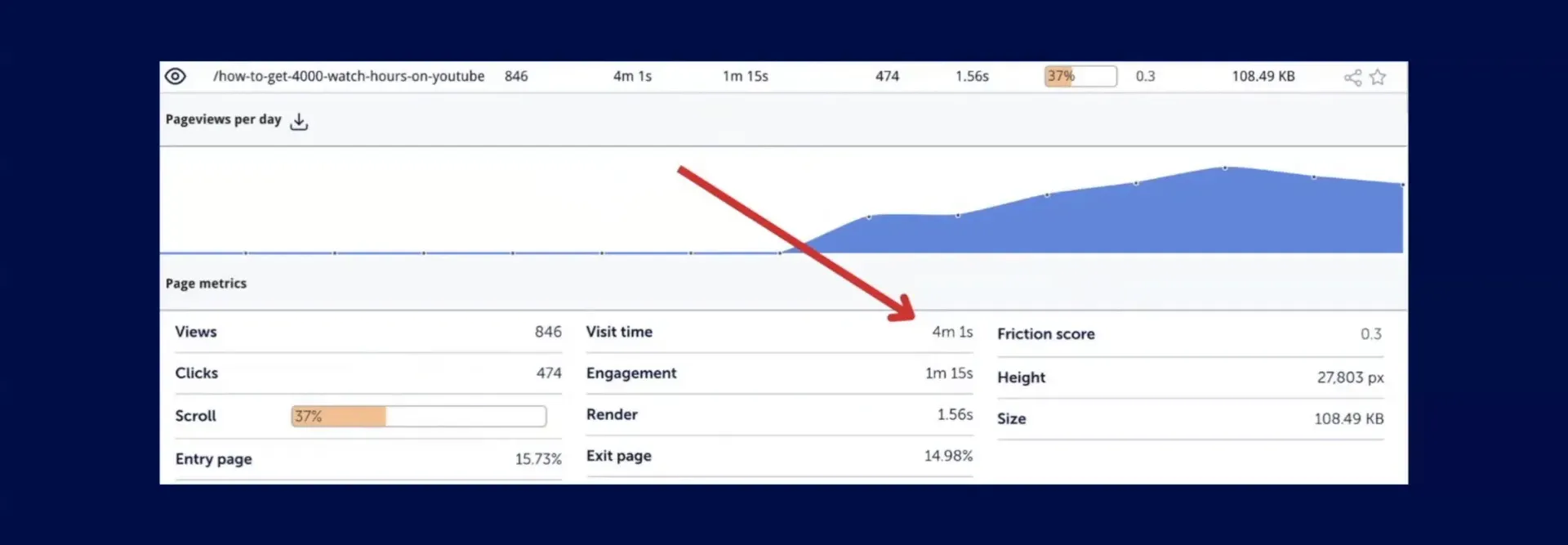Finding the right SEO keywords can feel overwhelming, but it doesn’t have to be. Here are 15 actionable techniques to help you discover the perfect keywords for your content strategy, ensuring you never struggle with keyword research again.
Table of Contents
- 1. Analyze Your Existing Website
- 2. Look for Low Hanging Fruits
- 3. Identify Awkward Keywords
- 4. Use Rankability for Relevance Checks
- 5. Explore Clustering Opportunities
- 6. Build Topic Authority
- 7. Utilize Google Search Console
- 8. Find Untapped Keywords
- 9. Analyze Backlinks
- 10. Leverage the “People Also Ask” Section
- 11. Explore Social Media Insights
- 12. Use Customer Data for Content Ideas
- 13. Tap into YouTube Content
- 14. Create Micro Content
- 15. Regularly Update Your Keyword Strategy
- FAQ
1. Analyze Your Existing Website
Start by analyzing your existing website or that of your client. Use tools like Semrush to access the positions tab. Focus on keywords ranking from positions two to fifteen, which I call “low-hanging fruits.” These keywords are ripe for improvement with just a few adjustments.
2. Look for Low Hanging Fruits
Keywords that are just outside the top ranking spots can significantly boost your click-through rates (CTR). For instance, the number one spot on Google garners about 30% CTR, while the second position gets around 15%. Aiming to improve these can provide substantial traffic increases.
3. Identify Awkward Keywords
Next, find keywords that are ranking decently, but not well enough to drive significant traffic. For example, if a keyword like “buy backlinks” ranks at position sixteen, it indicates room for improvement. Analyze the content to see if it meets user intent effectively.
4. Use Rankability for Relevance Checks
Utilize Rankability to check if your pages are relevant enough for their targeted keywords. Paste the keyword into the tool to evaluate the content’s relevance. Sometimes, even a good piece of content may not be specific enough to rank well.
5. Explore Clustering Opportunities
Look for keywords that indicate clustering opportunities (positions 51-100). These keywords show that Google recognizes your content but suggests that it could be more relevant. For instance, if you have a page about “Los Angeles SEO,” but keywords like “Beverly Hills SEO Company” are ranking, it’s time to create a dedicated page for that specific keyword.
6. Build Topic Authority
When you find relevant keywords, create additional supporting content or pages around those keywords. For example, if “guest posts” is relevant to your “buy backlinks” page, create a post dedicated solely to guest posting strategies. This builds internal links and reinforces your topic authority.
7. Utilize Google Search Console
Google Search Console is another powerful tool for keyword research. While it lacks some metrics, you can still find valuable insights. Check the keywords driving clicks and impressions and look for low-hanging fruit within those results.
8. Find Untapped Keywords
Identify keywords your competitors rank for but you do not. Use the keyword gap tool in Semrush to analyze competitors and discover untapped keywords that you can target.
9. Analyze Backlinks
Look into the backlink profiles of successful websites in your industry. Identify which pages attract backlinks and what types of content perform well. This can inform your content strategy and help you create high-value content.
10. Leverage the “People Also Ask” Section
Extract keyword ideas from the “People Also Ask” section in Google search results. Use tools like the detailed Chrome extension to automatically gather these ideas, providing a wealth of content inspiration.
11. Explore Social Media Insights
Platforms like Reddit, Quora, and TikTok can offer keyword and content ideas. For example, browse relevant subreddits and sort by top or rising posts to see what topics are currently engaging users.
12. Use Customer Data for Content Ideas
Analyze customer feedback to understand what interests them. This can guide you in creating content that resonates, leading to higher engagement and conversion rates.
13. Tap into YouTube Content
Check popular YouTube channels in your niche. Look at their most successful videos to identify trending topics that can be repurposed for your own content.
14. Create Micro Content
Utilize insights gathered from your keyword research to create micro-content for platforms like LinkedIn or Instagram. This can help drive traffic back to your main content and increase visibility.
15. Regularly Update Your Keyword Strategy
SEO is an ongoing process. Regularly revisit and refine your keyword strategy based on performance metrics. Utilize tools to track keyword rankings and adapt your content as needed.
FAQ
What is the best tool for keyword research?
There are several excellent tools for keyword research, including Semrush, Rankability, and Ahrefs. Each has its own strengths depending on your specific needs.
How often should I update my keyword strategy?
It’s advisable to review your keyword strategy at least quarterly. This allows you to adapt to changing trends and user behaviors, ensuring your content remains relevant.
Can I use keywords from competitors?
Yes, analyzing competitor keywords can provide valuable insights. Use tools to identify keywords they rank for that you may have overlooked.
How do I know if a keyword is worth targeting?
Consider the keyword’s search volume, competition level, and relevance to your content. Tools like Semrush and Google Keyword Planner can help assess these factors.
By employing these techniques, you can streamline your keyword research process and enhance your SEO strategy, driving more traffic to your site and improving your overall online presence.
